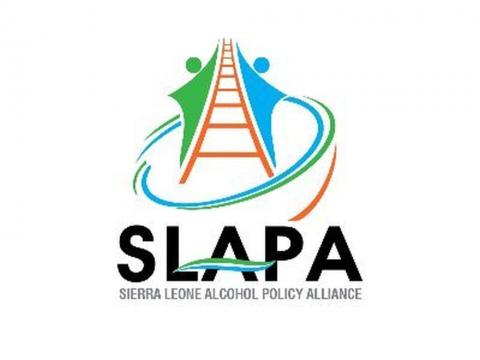By Saio Marrah
Sierra Leone last week hosted a national consultative meeting on alcohol control with the aim of developing a comprehensive national alcohol policy for the country.
The conference brought together participants from across the country, representing key figures in institutions with interest in the destructive effect of alcohol consumption.
During a presentation, the Director of Non-Communicable Disease and Mental Health (NCD-MH) at the Ministry of Health and Sanitation (MOHS), Dr. Santigie Sesay, explained that the aim of the meeting was to set up a policy that would put measures in place to control the supply of alcoholic beverages, thereby lessening demand and, subsequently, lessen its effect on the population. The meeting also discussed education and treatment programs, as well as harm-reduction strategies.
“The implementation of public policies seeking to address the links between alcohol consumption, health and social welfare would thus be considered as alcohol policies to serve the interests of public health and social well-being through their impact on health and social determinants such as drinking patterns and the drinking environment,” Dr Sesay said in a power point presentation on Wednesday.
The event was held at the Hill Valley Hotel at Congo Cross.
While stressing the need for a policy on alcohol, Dr Sesay said that in every ten seconds a person dies from its consumption and related matters, citing heart diseases, accidents and violence as common causes of deaths from the effect of alcohol.
Over 3 million people die as a result of harmful use of alcohol, he noted, citing World Health Organization (WHO) data for 2018.
According to Dr Sesay, alcohol is a threat to achieving quality education, as captured in the Sustainable Development Goal Four (SDG 4) and the Midterm Term National Development Plan Cluster 1.1 & 1.2), noting that wages are wasted on alcohol, while the household economy is ruined and jobs are lost.
Dr Sesay said the policy will be implemented in a way that it will provide essential measures to enact and enforce restrictions on commercial or public availability of alcohol through laws, policies, and programmes; prevent easy access to alcohol by young people and other vulnerable and high-risk groups; and establish an appropriate minimum age for purchasing or consumption of alcoholic beverages. Also of interest to the campaigners and the government, he noted, are measures that will create barriers against the sale and consumption of alcoholic beverages by adolescents. Policies will also be adopted to reduce and eliminate availability of illicit production, sale and distribution of alcoholic beverages as well as to regulate or control informal alcohol, he said.
Dr Sesay went on to note that as health professionals are also key in the control of alcohol consumption, health service providers will have to provide effective interventions for those in need of help and their families by supporting initiatives for screening for hazardous and harmful drinking at primary health care and other settings. Such initiatives, he said, will include early identification and management of harmful drinking among pregnant women and women of child-bearing age; securing universal access to health, including through enhancing availability, accessibility and affordability of treatment services for groups of low socioeconomic status; establishing and maintaining a system of registration and monitoring of alcohol-attributable morbidity and mortality, with regular reporting mechanisms.
In a virtual presentation from Zambia, the Technical Advisor & PR Southern African Alcohol Policy Alliance, Jonas Ngulube, said Zambia has up to 70 percent succeeded in alcohol control through the policies implemented.
Issah Ali, the head of Secretariat - West African Alcohol Policy Alliance, who is based in Ghana, noted that Ghana was among the countries that have partially succeeded in alcohol control policy.
Paramount Chief Sadiq Kapuwa of Nongowa Chiefdom in Kenema applauded the Ministry of Health and Sanitation for such an initiative, pointing out that an alcohol production firm in his district, known as Punjab, employs children and young adult. He said such a policy will hopefully address their concerns.
The Sierra Leone Alcohol Policy Alliance has been championing the cause for a policy.
Copyright © 2020 Politico Online








